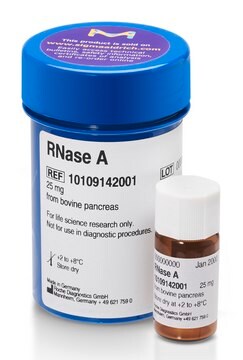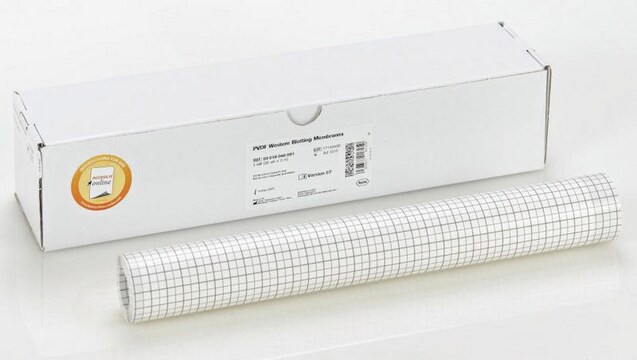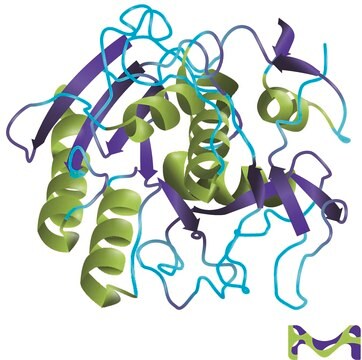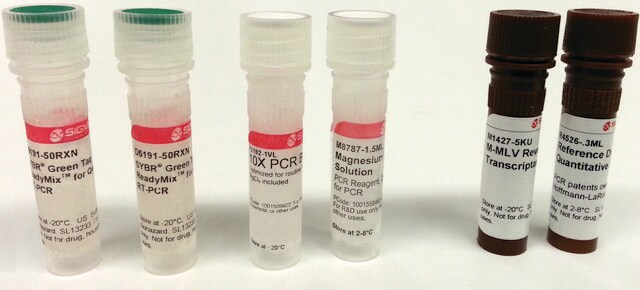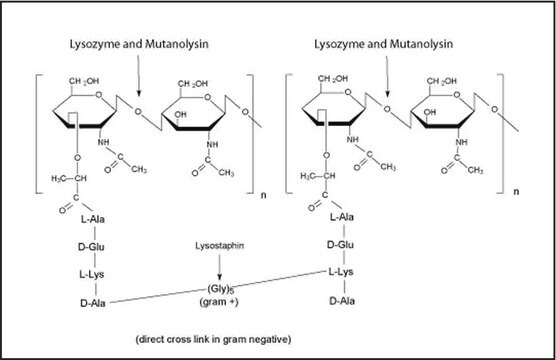PFORCEKB
Roche
KAPA PROBE FORCE
2 ×, Universal
Synonym(s):
qPCR
About This Item
Recommended Products
Quality Level
usage
sufficient for 100 reactions
20 μL sufficient for 100 reactions
sufficient for 500 reactions
20 μL sufficient for 500 reactions
shelf life
≤12 mo.
feature
dNTPs included
hotstart
packaging
kit of 1 mL (100 x 20 μL rxn; KK4300)
kit of 5 mL (500 x 20 μL rxn; KK4301)
manufacturer/tradename
Roche
concentration
2 ×
technique(s)
qPCR: suitable
input
crude DNA
detection method
probe-based
storage temp.
−20°C
General description
- Direct qPCR from crude blood, tissue, and plant extracts
- Sample-to-Cq workflows in <1 hour
- High efficiency for accurate, reproducible, and sensitive results
- Superior tolerance to carry-over inhibitors
- Multiplex compatibility with crude extracts
Application
- GMO testing
- Mouse transgenics
- SNP genotyping
- Food/water pathogen detection
- Infectious disease research
- Cancer research
- DNA quantification
- Quantitative polymerase chain reaction (qPCR)
- Digital droplet PCR
- For amplification of templates directly from cDNA synthesis reactions
Features and Benefits
- Eliminate the time and cost of sample purification by amplifying directly from crude samples
- Analyze a wide range of sample types including whole blood, cells, mouse tails, FFPE, leaf, stem, seed, and soil
Generate accurate and reproducible results:
- Kits include a third-generation DNA polymerase, evolved for robust target amplification and detection
- Enzyme maintains high reaction efficiency in the presence of PCR inhibitors for reliable data generation
Break through high levels of qPCR inhibitors:
- Achieve greater levels of sensitivity for inhibited blood, tissue, and plant samples
- Convert purified DNA assays to crude workflows without observable Cq delays
Multiplex crude samples efficiently:
- Accelerate genotyping analysis with single reaction allelic discrimination of crude DNA extracts
- Maximize data collection from precious samples, increase throughput, and reduce costs
Quick Notes:
- This kit contains the KAPA3G HotStart DNA Polymerase enzyme, enabling probe-based qPCR for both routine and challenging sample types.
- Initial denaturation of 3 min at 98°C is recommended to ensure complete denaturation of complex target DNA. A 5-min denaturation time may be required for some crude samples.
- For two-step cycling, use a 20-sec combined annealing/extension/data acquisition at 60°C as a first approach.
- A 10-sec annealing/extension/data acquisition time may be used with most assays, but this must be determined empirically.
- For crude samples, the amount of sample in the reaction may be reduced to improve performance, but this must be determined empirically.
Quality
Preparation Note
Other Notes
Kit Components Only
- KAPA3G HotStart® DNA Polymerase
- dNTPs (including dUTP)
- MgCl2 4.5 mM at 1X
- ROX™ reference dye
- stabilizers
Storage Class Code
12 - Non Combustible Liquids
WGK
WGK 1
Flash Point(F)
does not flash
Flash Point(C)
does not flash
Certificates of Analysis (COA)
Search for Certificates of Analysis (COA) by entering the products Lot/Batch Number. Lot and Batch Numbers can be found on a product’s label following the words ‘Lot’ or ‘Batch’.
Already Own This Product?
Find documentation for the products that you have recently purchased in the Document Library.
Our team of scientists has experience in all areas of research including Life Science, Material Science, Chemical Synthesis, Chromatography, Analytical and many others.
Contact Technical Service